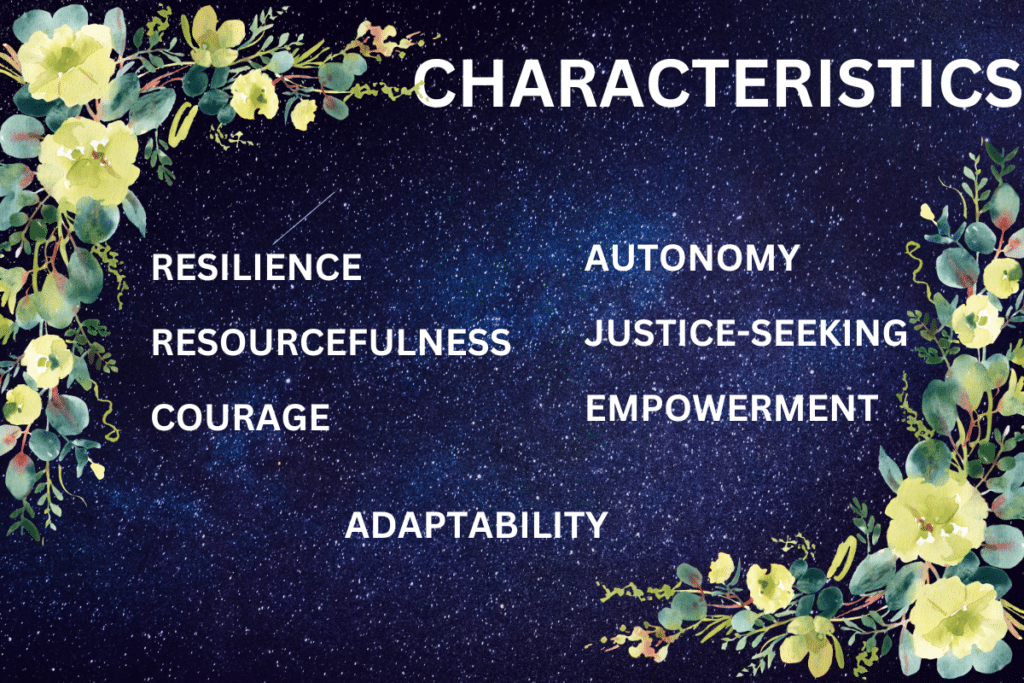THOUGHTFUL TAMAR IN THE BIBLE
Tamar in the Bible is a significant figure, her story found in the Old Testament. Tamar is the daughter-in-law of Judah, the fourth-born son of Jacob. Her story is intertwined with the Joseph narrative in Genesis 38, and it is a peculiar tale of betrayal, deception, and redemption.
After her husband Er dies, Tamar is left without an heir, and according to the custom of levirate marriage, Onan, Er’s brother, is expected to father a child with her. However, Onan refuses, and he too dies, leaving Tamar a widow for the second time. Judah, her father-in-law, fails to fulfill his duty by offering his youngest son, Shelah, to marry Tamar.
Instead, he sends her away, assuming she is the cause of his sons’ deaths. In a surprising turn of events, Tamar disguises herself as a prostitute and seduces Judah, ultimately conceiving twin boys, Perez and Zerah

Tamar in the Bible Genesis
Tamar’s Marriages and Deception (Genesis 38:1-30)
Tamar’s marriages and deception in the biblical narrative of Genesis 38 are a tale of intricate relationships and cunning strategies. After the deaths of her first two husbands, Er and Onan, Tamar is left in a vulnerable position due to Judah’s failure to fulfill the levirate marriage custom. Determined to secure her future and bear a child, Tamar resorts to deception by disguising herself as a prostitute to seduce Judah, her father-in-law.
This act of deception leads to Tamar conceiving twin sons, Perez and Zerah, from Judah. The story unfolds with a complex interplay of loyalty, righteousness, and the exposure of Judah’s hypocrisy. Tamar’s unconventional actions challenge societal norms and highlight her assertiveness in ensuring her place within the family lineage, ultimately revealing the complexities of justice and morality in challenging circumstances.

Tamar’s Lineage and Legacy (Genesis 38:27-30)
Tamar’s lineage and legacy are significant in the biblical narrative of Genesis 38:27-30. Tamar, Judah’s daughter-in-law, gives birth to twins, Perez and Zerah, after an unconventional act of deception to secure her future and bear a son for her deceased husband. The birth of Perez is particularly noteworthy, as he becomes the pre-eminent clan in Judah’s tribe and is part of the lineage that leads to King David and ultimately to Jesus Christ.
This story highlights Tamar’s resilience and determination, as well as the complexities of justice and morality in challenging circumstances. Tamar’s actions, while unorthodox, demonstrate the necessity of going beyond the law to fulfill the law and enable the well-being of a community. Her legacy is one of resourcefulness, assertiveness, and a commitment to ensuring her place within the family lineage.
Significance in Biblical Context of Tamar in the Bible
Tamar in the Bible holds significant importance in the biblical context due to her resilience, assertiveness, and role in the lineage leading to King David and Jesus Christ. Her story, as depicted in Genesis 38, showcases her unconventional actions to secure her place in the family lineage, challenging societal norms and highlighting the complexities of justice and morality.
Tamar’s courage and resourcefulness, particularly in the face of adversity and injustice, exemplify the necessity of going beyond the law to fulfill it and enable the well-being of the community. Through her actions, Tamar not only ensures the continuation of her deceased husband’s lineage but also plays a crucial role in the genealogy that leads to the birth of Jesus Christ, emphasizing her enduring legacy and the significant impact of her assertive and unconventional choices.
Interpretations of Tamar’s Story
Jewish Interpretations
Jewish interpretations of Tamar in the Bible, emphasize her positive character and actions, despite the unconventional and controversial nature of her actions. The later Rabbis sharply criticize Judah and his sons but describe Tamar positively, highlighting her purity, righteousness, and the proper way in which she performed. Her actions demonstrate loyalty, assertiveness, and willingness to secure her place in the family lineage.
Tamar in the Bible is often compared to the matriarchs, such as Rebecca, who also gave birth to twins. The midrash in Genesis Rabbah identifies commonalities between the stories of Tamar and Rebecca, connecting Tamar to the matriarchs.
In the Jewish Theological Seminary, Tamar is considered a mother in Genesis and a direct ancestor of the future king David, emphasizing her significance in the broader context of the Imahot, the matriarchs.
Jewish interpretations of Tamar’s story often focus on her resourcefulness, assertiveness, and the injustices she faced. Her actions, while unconventional, highlight the necessity of ensuring the well-being of a community and the importance of her place in the family lineage.
Christian Interpretations
Christian interpretations of Tamar’s story in the Bible often focus on themes of redemption, justice, and the complexities of human relationships. Tamar’s actions, though unconventional, are sometimes seen as a means to fulfill a greater purpose, highlighting the importance of ensuring justice and continuity within the family lineage.
Some Christian interpretations emphasize Tamar’s resilience and resourcefulness in the face of adversity, showcasing her as a figure who takes bold steps to secure her place and fulfill her role in the unfolding narrative of redemption. Tamar’s story is viewed as a testament to the complexities of morality and the need to sometimes go beyond conventional norms to achieve justice and righteousness.
Overall, Christian interpretations of Tamar’s story underscore the significance of her actions in the broader context of biblical themes of faith, justice, and redemption.
Tamar’s Relevance Today
Tamar’s story in the Bible is relevant today due to the themes of injustice, resilience, and redemption it presents. Tamar, a Canaanite woman and Judah’s daughter-in-law, was betrayed by her father-in-law and took matters into her own hands by disguising herself as a prostitute and conceiving twin boys by him. Her story is significant because she is the first woman listed in the genealogy of Jesus Christ, demonstrating that God uses the unlikely and marginalized to fulfill His purposes.
Tamar’s story also highlights the importance of standing up for justice and speaking out against injustice. Her actions, while unconventional, were necessary to secure her place in the family and ensure the continuation of her husband’s lineage. Her story serves as a reminder that God is present even in the most difficult circumstances and that He uses the actions of individuals to bring about redemption and justice.
Furthermore, Tamar in the Bible is relevant today because it speaks to the experiences of women who have faced injustice and marginalization. Tamar’s desolation and the impact of sexual abuse on her life are still relevant issues today, and her story serves as a reminder of the importance of validating the voices and experiences of those who have suffered from such abuse.
Tamar in the Bible is relevant today due to its themes of injustice, resilience, redemption, and the importance of standing up for justice and validating the experiences of those who have faced marginalization and abuse.
Empowerment in Adversity
Tamar’s actions in the face of adversity serve as a timeless example of empowerment. Despite facing societal constraints and experiencing tragedy in her marriages, Tamar refuses to remain passive. Instead, she takes control of her circumstances and devises a daring plan to secure her lineage and future. This proactive approach to overcoming obstacles embodies the essence of empowerment, inspiring individuals to assert their agency and strive for their goals, even in challenging circumstances.
Challenging Gender Norms
Tamar’s story challenges traditional gender norms and expectations. In a patriarchal society where women were often marginalized and lacked agency, Tamar asserts her autonomy and refuses to be bound by societal limitations. By disguising herself and taking the initiative to conceive children, Tamar defies the expectations placed upon her as a woman, highlighting the fluidity and complexity of gender roles. Her story serves as a reminder of the importance of breaking free from restrictive gender stereotypes and advocating for gender equality and empowerment in contemporary society.
Lessons From Tamar in the Bible
Tamar’s narrative offers valuable lessons for today’s world, particularly in the realm of gender dynamics and empowerment. Her courage, resilience, and willingness to challenge societal norms inspire individuals to confront injustice, assert their rights, and strive for equality. Tamar’s story reminds us that empowerment is not just about individual strength, but also about challenging systemic inequalities and working towards a more inclusive and equitable society.
From Tamar in the Bible, there are several valuable lessons we can learn:
- Resilience in Adversity: Tamar faced numerous challenges and injustices, yet she remained resilient and determined to secure her rights and seek justice. Her ability to persevere in the face of adversity teaches us the importance of resilience and strength in difficult times.
- Courage to Challenge Injustice: Tamar did not passively accept her fate but instead took bold steps to confront injustice and assert her rights. Her actions inspire us to have the courage to challenge injustice and stand up for what is right, even when it may seem daunting.
- Agency and Empowerment: Despite living in a patriarchal society where women had limited agency, Tamar asserted her autonomy and took control of her own destiny. Her story highlights the importance of empowering oneself and taking proactive steps to shape one’s future.
- The Power of Resourcefulness: Tamar’s clever tactics, such as disguising herself to secure her rights, demonstrate the power of resourcefulness and strategic thinking. Her resourcefulness teaches us the importance of thinking creatively and finding innovative solutions to overcome obstacles.
- The Pursuit of Justice: Tamar’s determination to seek justice, even at great personal risk, underscores the importance of upholding principles of fairness and equity. Her story reminds us of the importance of fighting for justice, both for ourselves and for others who may be oppressed or marginalized.
Characteristics of Tamar in the Bible

Tamar, as depicted in the Bible, exhibits several notable characteristics:
- Resilience: Tamar demonstrates remarkable resilience in the face of adversity. Despite facing multiple challenges and injustices, she remains steadfast in her pursuit of justice and securing her rights.
- Resourcefulness: Tamar displays a keen sense of resourcefulness and strategic thinking. She devises clever plans, such as disguising herself as a prostitute, to achieve her goals and overcome obstacles.
- Courage: Tamar exhibits courage in challenging circumstances. She confronts injustice and takes bold actions to assert her rights, even when doing so entails significant personal risk.
- Autonomy: Despite living in a patriarchal society where women had limited agency, Tamar asserts her autonomy and takes control of her own destiny. She refuses to be passive in the face of oppression and actively seeks to shape her future.
- Justice-seeking: Tamar is portrayed as a seeker of justice. She refuses to accept unfair treatment and takes proactive steps to ensure that she receives what is rightfully hers, embodying principles of fairness and equity.
- Empowerment: Tamar’s story serves as a testament to the empowerment of marginalized voices. She challenges societal norms and expectations, asserting her rights and advocating for herself in a male-dominated world.
- Adaptability: Tamar demonstrates adaptability in navigating complex situations. She adjusts her plans as circumstances change and finds innovative solutions to achieve her objectives.
Conclusion
In conclusion, the story of Tamar in the book of Genesis offers a profound exploration of justice, resilience, and the triumph of the human spirit. Her daring actions challenge societal norms and expectations, leaving a lasting legacy that continues to inspire and empower individuals today.
REFERENCE
Unique FAQ’s about Tamar in the Bible
- Was Tamar considered a heroine in ancient times?
- Yes, Tamar was often celebrated for her bravery and resourcefulness in ancient societies.
- What lessons can we learn from Tamar’s experiences?
- Tamar’s story teaches us the importance of resilience, standing up against injustice, and seeking retribution when wronged.
- Are there any modern-day parallels to Tamar’s stories?
- Unfortunately, yes. Tamar’s experiences mirror those of many individuals who face oppression and injustice in contemporary society.
- Why is Tamar’s legacy still relevant today?
- Tamar’s legacy serves as a reminder of the ongoing struggle for equality and justice, inspiring individuals to continue fighting for a more equitable world.
- How does Tamar’s story contribute to biblical narratives?
- Tamar’s narrative challenges traditional gender roles and highlights the agency of marginalized individuals in biblical history.


1 thought on “10. THOUGHTFUL TAMAR IN THE BIBLE”